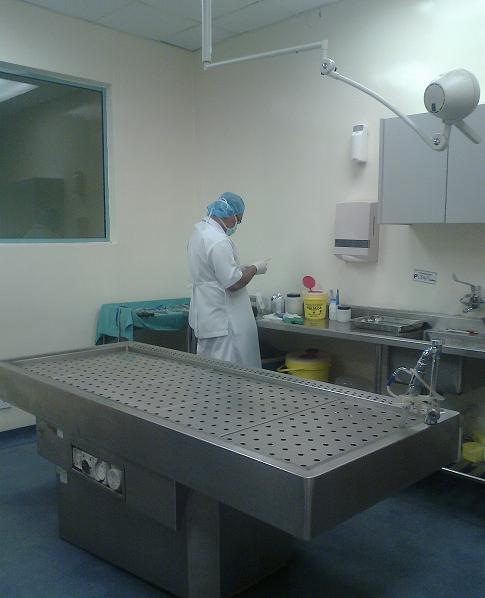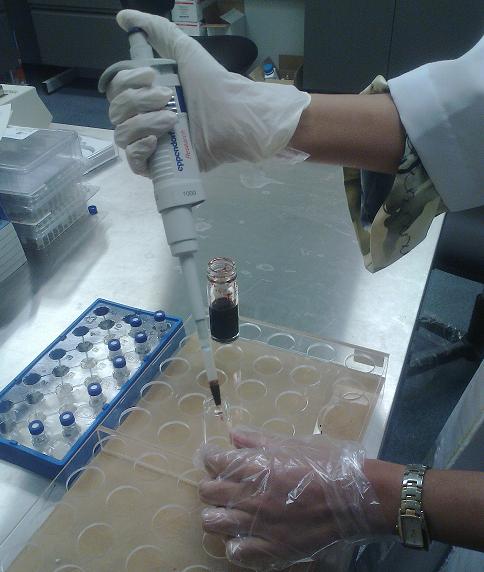Introduction to Forensic Medicine
Forensic Medicine is a field of knowledge that combines facts, knowledge, and medical skills to assist the authorities in resolving death cases involving legal processes (Shahrom, 2001). This branch of science helps uncover the truth about criminal incidents and contributes to justice for both perpetrators and victims. Information obtained from forensic medicine is also useful in insurance and takaful matters.
Role of Forensic Medicine
The Forensic Medicine services in Malaysia are led by the National Institute of Forensic Medicine (IPFN) based at Kuala Lumpur Hospital. This institution extends its services throughout Malaysia, including Sabah and Sarawak, providing forensic pathology, clinical forensics, and forensic sciences services. The services offered are as follows:
-
Forensic Pathology / Post-Mortem Examination
Post-mortem examinations are conducted on deceased individuals upon the directive of the Royal Malaysia Police, using Form 61 – Request for Post-Mortem Examination. Depending on the requirements, the examination may involve surgical procedures or external examinations only.
Post-mortem examinations are carried out by trained officers in the field of Forensic Medicine, led by Forensic Medical Experts, with the assistance of Medical Officers, Assistant Medical Officers, and Healthcare Assistants. Police Investigating Officers are also present during the examination.
The objectives of post-mortem examinations include identifying the deceased’s identity, estimating the time of death, recording the conditions leading to death (physical injuries), determining the cause of death, and collecting samples as evidence. The examination can also confirm the presence of drugs or poisons in the deceased.

Image 1: The situation inside the post-mortem examination room with a staff member preparing the necessary equipment.
(The image was taken by the staff of the Department of Forensic Medicine, Hospital Sungai Buloh for the purpose of publishing on the portal MyHEALTH).
-
Clinical Forensics
Clinical forensic examinations are conducted on victims who have experienced physical or sexual abuse, such as in cases of domestic violence, child abuse, assault, rape, sodomy, and others. The examination is conducted by specialized doctors with the assistance of other medical staff.
The aim is to identify and record the victim’s injuries and collect biological and physical evidence from the victim’s body.
-
Forensic Sciences
Forensic Sciences services involve the examination and analysis of evidence in the laboratory. Biological samples such as blood, urine, organs, and body tissues are taken from the deceased for analysis of chemical content, biochemical indicators, and pathology in the body before, during, or after death.
The analyses include toxicology (hazardous chemicals and poisons), anthropology (bone analysis), histopathology (tissue/organ analysis), entomology (insect analysis), and diatomology (analysis of diatoms in body fluids).

Image 2: A forensic scientist is preparing samples for analysis in the laboratory.
(The image was taken by the staff of the Department of Forensic Medicine, Hospital Sungai Buloh for the purpose of publishing on the MyHEALTH portal).
Need and Importance of Post-Mortem Examination
- A post-mortem examination has several crucial needs to justify its importance in death cases involving medico-legal issues.
- The need to uphold justice for all parties involved, including the deceased, the accused, the heirs, and the insurance companies.
- To ascertain the true cause of death and the factors contributing to injuries, and to verify and confirm the circumstances of death.
- To assist in identifying the perpetrators of the crime and to prove the innocence of the accused in the case.
- Data and findings from post-mortem examinations can also be used to formulate policies and preventive measures, such as reducing the risk of road and workplace accidents.
Post-Mortem Examination According to Islamic Perspective
Islamic scholars and thinkers worldwide discuss post-mortem examination with a critical approach. In principle, post-mortem examination is forbidden, but in cases of dharuriyyat (emergencies), it becomes permissible as long as it does not exceed the limits and does not harm the body for purposes other than the necessary ones.
On 13 December 1989, the National Fatwa Committee’s 25th Meeting issued the following ruling regarding post-mortem examination in Islam:
“Post-mortem examination of Muslim bodies is only allowed if it is absolutely necessary (darurat) such as in cases where post-mortems are highly required, or when the deceased has swallowed valuable objects, or when the deceased is pregnant and the fetus is still alive.”
This ruling emphasizes that post-mortem examination of Muslim bodies is allowed in emergency situations requiring post-mortem, when the deceased has swallowed valuable objects, or when the deceased is pregnant and the fetus is still alive. However, this ruling also indicates that such post-mortem procedures should only be carried out when necessary and in urgent situations. This highlights the importance of adhering to Islamic principles and ethics while performing post-mortem examinations.
Therefore, based on the understanding of Islamic scholars and thinkers, post-mortem examination can be performed for the purposes discussed earlier. The examination should also adhere to the guidelines set by the Ministry of Health Malaysia and respect the ethics that must be followed while conducting post-mortem examinations.
| Last Reviewed | : | February 2024 |
| Translator / Reviewer | : | ChM. Dr. Khairul Adli bin Nikman |







